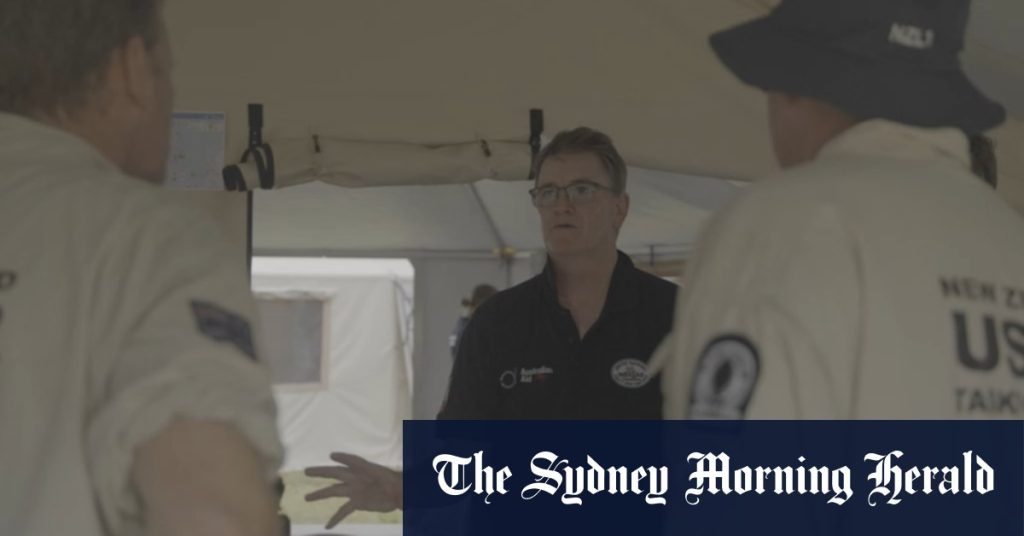Australia swiftly responded to a devastating earthquake in Vanuatu, deploying a comprehensive aid package focusing on immediate relief and long-term recovery. The Department of Foreign Affairs and Trade (DFAT) spearheaded the operation, coordinating with Vanuatu authorities and other international partners to ensure a targeted and effective response. The initial phase concentrated on providing essential necessities like clean water, food, shelter, and medical supplies to affected communities. A rapid assessment team was dispatched to evaluate the extent of the damage and identify the most pressing needs. Australian medical personnel were deployed alongside mobile medical units to provide emergency care and address potential health crises resulting from the disaster.
Given Vanuatu’s archipelagic nature, the logistical challenges of reaching remote islands were significant. The Royal Australian Air Force (RAAF) played a crucial role, utilizing aircraft like the C-130J Hercules and C-17A Globemaster to transport personnel, supplies, and heavy equipment to affected areas. The Royal Australian Navy also contributed to the effort, deploying ships to facilitate transportation and provide logistical support where air access was limited. This combined air and sea lift capacity enabled Australia to deliver vital aid quickly and efficiently, even to the most isolated communities. The coordination between different branches of the Australian Defence Force was paramount in overcoming the geographical complexities of the relief effort.
Beyond the immediate emergency response, Australia committed to supporting Vanuatu’s long-term recovery and reconstruction. This involved collaborating with Vanuatu authorities to assess the damage to infrastructure, including buildings, roads, and communication networks. Australian engineers and construction experts worked alongside local communities to rebuild essential infrastructure, focusing on resilient designs that could withstand future natural disasters. Recognizing the importance of restoring normalcy for affected populations, the recovery efforts included rebuilding schools and hospitals, critical for providing essential services and fostering a sense of stability and hope.
A crucial component of the long-term recovery was addressing the psychosocial impact of the disaster. Earthquakes can have profound psychological effects on survivors, and Australia recognized the need to provide mental health support to those affected. Australian mental health professionals were deployed to work alongside local communities, offering counselling and psychological first aid. This focus on mental health emphasized the holistic approach taken by Australia, recognizing that recovery extends beyond physical rebuilding to encompass the emotional well-being of individuals and communities.
Australia’s aid program also prioritized building local capacity and empowering Vanuatu to prepare for and respond to future disasters. This involved collaborating with Vanuatu authorities to develop disaster preparedness plans and strengthen early warning systems. Training programs were implemented to equip local communities with the skills and knowledge to effectively respond to emergencies. This investment in long-term resilience sought to mitigate the impact of future disasters and promote self-sufficiency within Vanuatu. By strengthening local capacity, Australia aimed to create a more sustainable and robust framework for disaster management within the nation.
Australia’s comprehensive response to the earthquake in Vanuatu reflected its longstanding commitment to supporting its Pacific neighbours. The rapid deployment of aid, the focus on both immediate relief and long-term recovery, and the emphasis on building local capacity demonstrated the depth of Australia’s engagement in the region. The coordinated efforts of DFAT, the Australian Defence Force, and other agencies highlighted the effectiveness of Australia’s disaster response mechanisms. Moreover, the collaborative approach taken with Vanuatu authorities and international partners underscored the importance of working together to address shared challenges and build a more resilient Pacific. Australia’s commitment extended beyond the immediate crisis, reflecting a genuine partnership with Vanuatu in its journey toward recovery and future preparedness.

